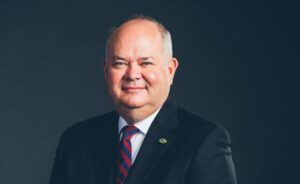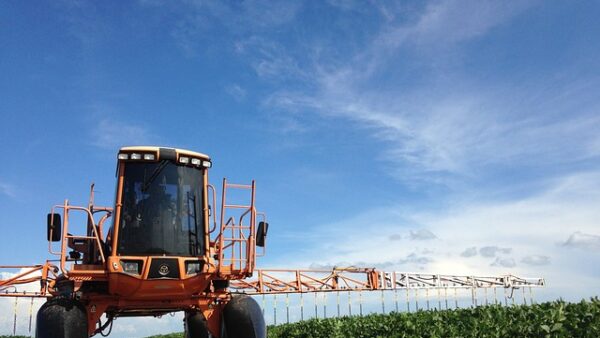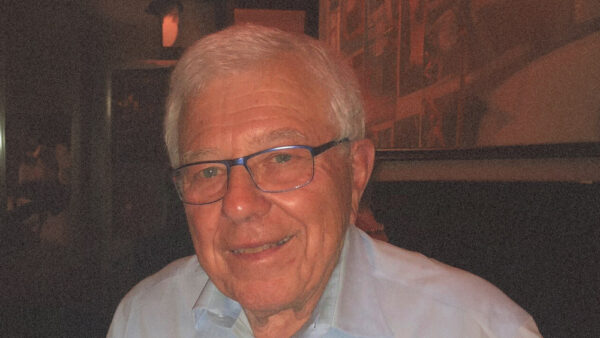Seed industry leaders speak out about the importance of trust and relationships.
Many seed industry leaders consider agriculture a relationships business. And as such, foremost on the minds of those leaders in 2018 was engendering trust and bolstering relationships along the entire value chain as well as with consumers.

Trust is the foundation upon which Crystal Fricker, president of Pure-Seed Testing and Pure Seed, has built her businesses. For example, Fricker tries to convey on all levels the principles she has based her companies on.
“In this business, we’re working with crops and plants and seeds, which is my first love, but then you’re also working with people. Ethics are very important in this industry… this whole industry is really relationships and trust,” she says.
“[Portraying] the honesty in the industry is what our company tries to do in all our labeling, in all our products, all those things to put forth the truth with what we’re doing.”
David Hollinrake, president of Syngenta Seeds, also considers agriculture a relationship business. Out of the confusion created by large-scale industry consolidations, Hollinrake sees opportunity to educate end-users different than in the past.
“This is one of the greatest challenges we must address collectively. Simply put, we’ve got a great story to tell. We’ve traditionally told it in this business with facts and figures, citing the science and safety, and that doesn’t resonate with consumers,” he says.
“We have to understand why they have opposition, and we have to then bridge the head and the heart. We’ve started with the intellectual side and have forgotten that most of the concerns are emotive. If we can understand their emotional perspective, why they have anxiety about technology and food, then I think we have a chance to bridge it. It’s really a Stephen Covey principle — seek first to understand before trying to be understood.”
Hollinrake also considers the upheaval caused by industry consolidations as an opportunity to earn trust within the industry.
“We can learn a lot from independent seed companies. I think the biggest challenge they have is the confusion around industry consolidation — who’s going to be that partner of choice? We want to be the partner of choice that helps them through this difficult transition. We need them to be our partner of choice so we can achieve the scale necessary to afford the R&D footprint we have — however, we’ve got to earn that position,” he says.
“Some of the things we can provide them is insight on how to bridge consumer skepticism. Perhaps we can offer business insights or market research insights they don’t have the scale or affordability to do. Bringing them into our business and showing them the technology and where technology is headed is a great opportunity to partner as well.”
The Independent Professional Seed Association (IPSA) also focuses on helping its members build trust and relationships with their farm customers.

“IPSA helps encourage this whole model of trust and helps independent seed companies build their trust portfolios,” says Todd Martin, CEO of IPSA.
He also acknowledges the emotional element surrounding seed. Martin says providing accurate information, good products and the best possible services help build trust with farmers and also add value farmers want.
“I learned long ago, when a farmer looks at his purchase of seed, it is the most important and most emotional decision he can make,” Martin says. “After all, we all use the language ‘it starts with the seed.’ That is it at the end of the day, it is the most important purchase of the year.
“A farmer has to have the best information possible to make that purchase. It’s really not a purchase he wants to buy on the internet. He needs somebody he trusts on his farm that gives him the best data available. And that’s one of the pieces from a local standpoint where the independent seed companies can’t be beat. They are in those communities and they are engaged with those farmers because they are their neighbors and friends.”
Taking the Floor
Improving communication was also high on the agendas of industry leaders in 2018. Michael Keller, secretary general of the International Seed Federation, says the industry must “communicate more, better and also in an easier way.”
Whether it’s with farmers, consumers or politicians, Keller believes communication is key. And the industry must learn how to address the floor in a world where consumers want to know exactly what they are eating, where it came from, who produced it, and where the seed originated as well as its composition.
“We need to learn, we need to implement, that is our responsibility as a seed sector: we have to speak out on the different topics — innovation, illegal seed practices, support choice for farmers, but also access and use of genetic resources, which is absolutely key for our industry,” Keller says.
“We should not communicate only on the science and data. We need to tell everybody our story. The story of seed. From where we are coming, to where we want to go, to what we do on a daily basis on the ground for all farmers in the world: smallholder, subsistence or larger farmer.”
In addition to more effective and increased communication to parties outside the sector, engagement of the whole value chain is essential, such as grain traders, retailers and food processors.

“We have to communicate not only with farmers, but also with the whole value chain. We have to be open, to explain what and how we are doing, what will be the future of the seed sector and what the next generation of quality seeds we bring to farmers will be,” Keller says.
Furthermore, the significance of industry associations and committees as unifying and compelling voices for the sector has never been greater.
“We need to work together, we need seed associations to be a voice at regional, national and international levels. This is the structure and the strength of ISF: that we have associations from Africa, Asia, South America, North America, Europe, Australia, New Zealand, working together on our shared visions and on our strategic objectives,” he says.
“I cannot mention enough the importance of national seed associations to do the job on the ground where they are in the world.”
In addition, industry committees continue to provide leadership and influence to achieve industry goals as well as ensuring program funding is sustained.
For example, the Plant Breeding Coordinating Committee works to raise awareness of the importance of plant breeding to the U.S. economy.
“We wanted to have a way of influencing funding agencies or directing funding to promote plant breeding. We have goals we need to work on and deliver,” says Ksenija Gasic, the PBCC chair and associate professor of horticulture, peach genetics and breeding at Clemson University.
“We were concerned the national level of awareness was not where it should be. The National Association of Plant Breeding and the PBCC together are doing a great job of making an awareness of plant breeding in everyday life, especially among students and the young generations who will replace breeders in the following years.”
2018 Mood Gauge
In many respects, it has been a challenging year, say seed industry leaders, due to consolidation confusion and economic angst. However, there’s also a feeling of optimism as a result of increased opportunities in the wake of uncertainty.
Although farmers are producing high yields, they’re getting less money for those acres due to low commodity prices. Input costs haven’t gone down either so those expenditures are cutting into farmers’ bottom lines.
When that happens, the farming community hurts and everybody up the chain also starts to feel the financial squeeze, says Martin. This creates anxiety for the farming community. Added to this is large-scale consolidations, causing confusion and concern for farmers.
“We’ve seen movements with Dow and DuPont, Syngenta and ChemChina, and Monsanto and Bayer — as there are more consolidations, there are more situations out there that concern farmers. Are they going to see the same type of technical innovation they’ve seen for the past two decades since the advent of GMOs and Bt products in the marketplace? Are we still going to see the genetic gains? Those are all questions and troubling concerns,” Martin says.
Yet, there’s optimism. Optimism for solving these issues and for continuing to build business, as well as optimism about an industry that takes care of its own.
“Yes, there’s concern and [IPSA] members seem guarded, but at the same time there’s optimism that we’re going to do our jobs and we’re going to be the best we can be. You know the farmers are going to take care of us and we’re going to take care of them,” says Martin.

Furthermore, the confusion surrounding consolidation is creating opportunity. In this changeable space, Syngenta is “doubling down” on talent acquisition, breeding and trait technology investments, on building its brands, as well as increasing its capabilities through collaborations, says Hollinrake.
According to Keller, the vibe at the 69th ISF World Seed Congress was also upbeat and optimistic.
“This year I felt more engagement than ever. There is a will to engage. What has united all of us is our shared vision — best quality seeds, accessible for all farmers to support sustainable agriculture and food security.”
Innovation Shines
The seed industry must continue to innovate, says Keller. In fact, so important is innovation to the sector, the theme of the latest ISF congress was “Where Innovation Shines.” At the congress, ISF put forward eight position papers to drive the industry’s objectives forward.
“The priority of the seed industry is to continue to innovate and bring the best quality seeds to farmers in times of climate change and in times of increased pests and diseases around the world to support sustainable agriculture and food security,” he says.
To support innovation, consistent criteria for regulatory oversight on plant breeding innovation is essential.
“We need to be able to continue to innovate, but innovation itself brings nothing to farmers. If you’re not able to bring innovation to the farmers, that means within consistent regulations, the thing will not fly. Support is coming thanks to clear, consistent regulations allowing us to innovate and bring quality seeds to farmers,” says Keller.
In addition to innovation, Martin also believes adoption of new technologies is key to the success of his association’s members and to farmers.
“We’re in a new, rising technological world. Seed companies have to be able to adapt to the new realities of what technology brings. I see them embracing some of the newer technologies which they can work with their farmers on,” he says.
“I think independent seed companies have to deliver on the product promise, and they have to have high trust and integrity, so that farmers absolutely trust them. And they have to honor that by never violating that trust, and on top of that they have to be innovative within the new technologies that are coming into play. I do believe our members are going in that direction.”













